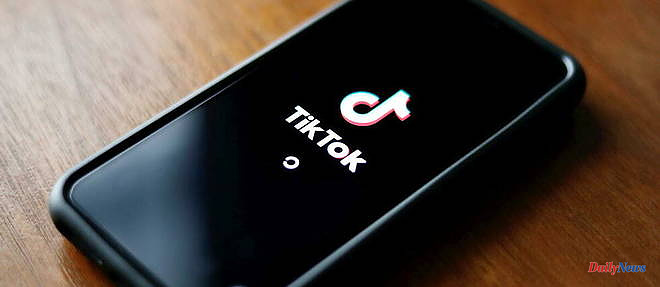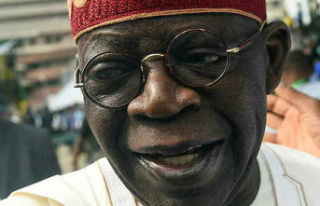After ordering US officials to ban TikTok from their devices, the US may well go even further. Congress was considering a bill on Tuesday, February 28, that could lead to a total ban on the popular Chinese app in the country. A decision motivated by the threat that the Chinese social network would represent for national security, according to many elected officials.
"TikTok is a modern Chinese Communist Party Trojan horse used to monitor Americans and exploit their personal information," said Michael McCaul, chairman of the Foreign Affairs Committee of the lower house of the US Congress, on Tuesday. This committee was debating on Tuesday a bill carried by the Republicans, which would give the authority to President Joe Biden to completely ban TikTok, a subsidiary of the Chinese group ByteDance, in the United States.
It would first have to be adopted by both chambers. But the measures showing the firmness of the United States against China are among the rare subjects which unite on the right and on the left in Congress, especially after the destruction of a supposed Chinese spy balloon.
Many U.S. elected officials view the short-form, viral video platform as a national security threat. They fear, along with a growing number of Western governments, that Beijing could access user data around the world through this app, something TikTok has denied for years. Monday evening, the White House ordered federal institutions to ensure that TikTok disappears from their smartphones within 30 days, pursuant to a law ratified in early January by Joe Biden.
TikTok called the ban a matter of "political theater", and regretted that "this approach is being copied by other governments around the world", according to a spokesperson for the platform.
The European Commission and the Canadian government recently made similar decisions for their civil servants' mobile phones, and the Danish Parliament announced on Tuesday that it has asked MPs and staff to remove the app from their devices. The U.S. government will "continue to consider other possible steps," Olivia Dalton, an executive branch spokeswoman, said Tuesday, "including how to work with Congress on this in the future."
Banning the app would be tantamount to "censoring" millions of Americans, protested TikTok, which claims more than 100 million users in the United States. The powerful civil rights association ACLU is also opposed to a bill that "would deprive Americans of their constitutional right to freedom of expression", argued one of its lawyers, Jenna Leventoff, quoted in a press release.
"If it weren't so disturbing, it would be hilarious for US elected officials to try to get 'tough on China' by acting exactly like the Chinese government," said Evan Greer, director of the NGO Fight for the Future. She calls on Congress to pass laws to prevent all platforms, not just TikTok, from harvesting "so much personal data" about citizens.
TikTok and the White House recalled that a review was underway by a government agency, the CFIUS, responsible for assessing the risks of any foreign investment for American national security. "The quickest and most effective way to address these concerns [...] is for CFIUS to adopt the proposed agreement that we have been working on with them for almost two years," said the TikTok spokesperson. .
The company stores US user data on servers located in the country. She admitted that employees based in China had access to it, but under a strict and limited framework, and not the Chinese government. But for some elected officials, the problem goes deeper. Michael McCaul spoke of the risk that the platform's powerful content recommendation algorithms could be used to "influence younger generations".
“TikTok allows the CCP to manipulate and monitor its users. It's like a spy balloon on your phone," he said.
A total ban - like in India since 2020 - would anger many content creators and users, "but we're far enough away from the next election that people have forgotten, and another app has taken over," thinks Andrew Selepak, professor specializing in media and technology at the University of Florida.
"TikTok has already been banned by federal agencies, universities, political parties, the military... It would be pretty hypocritical to say that the privacy of the average American isn't as important." »












